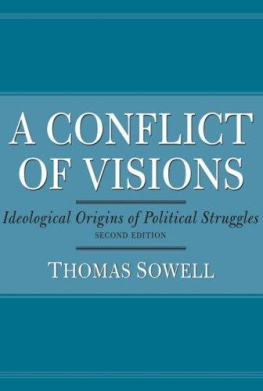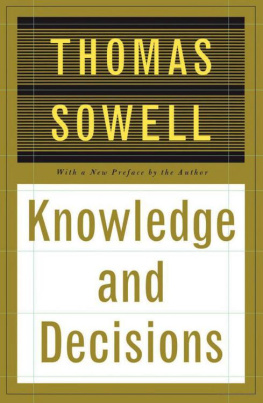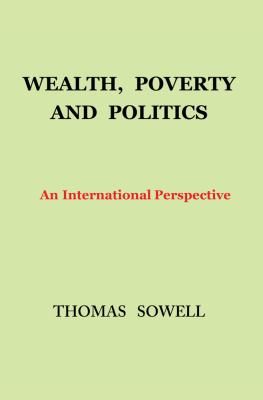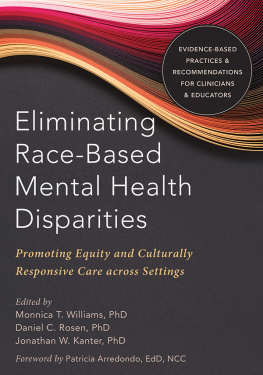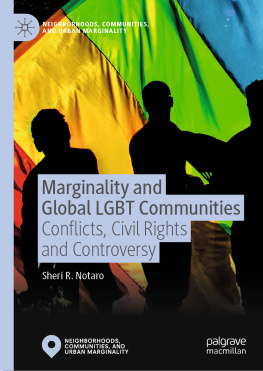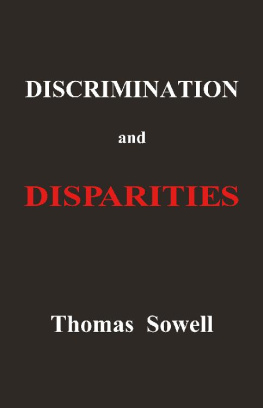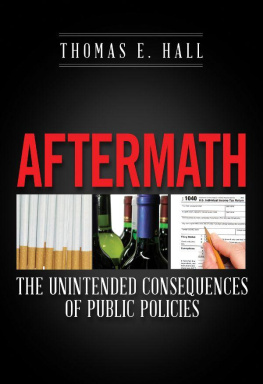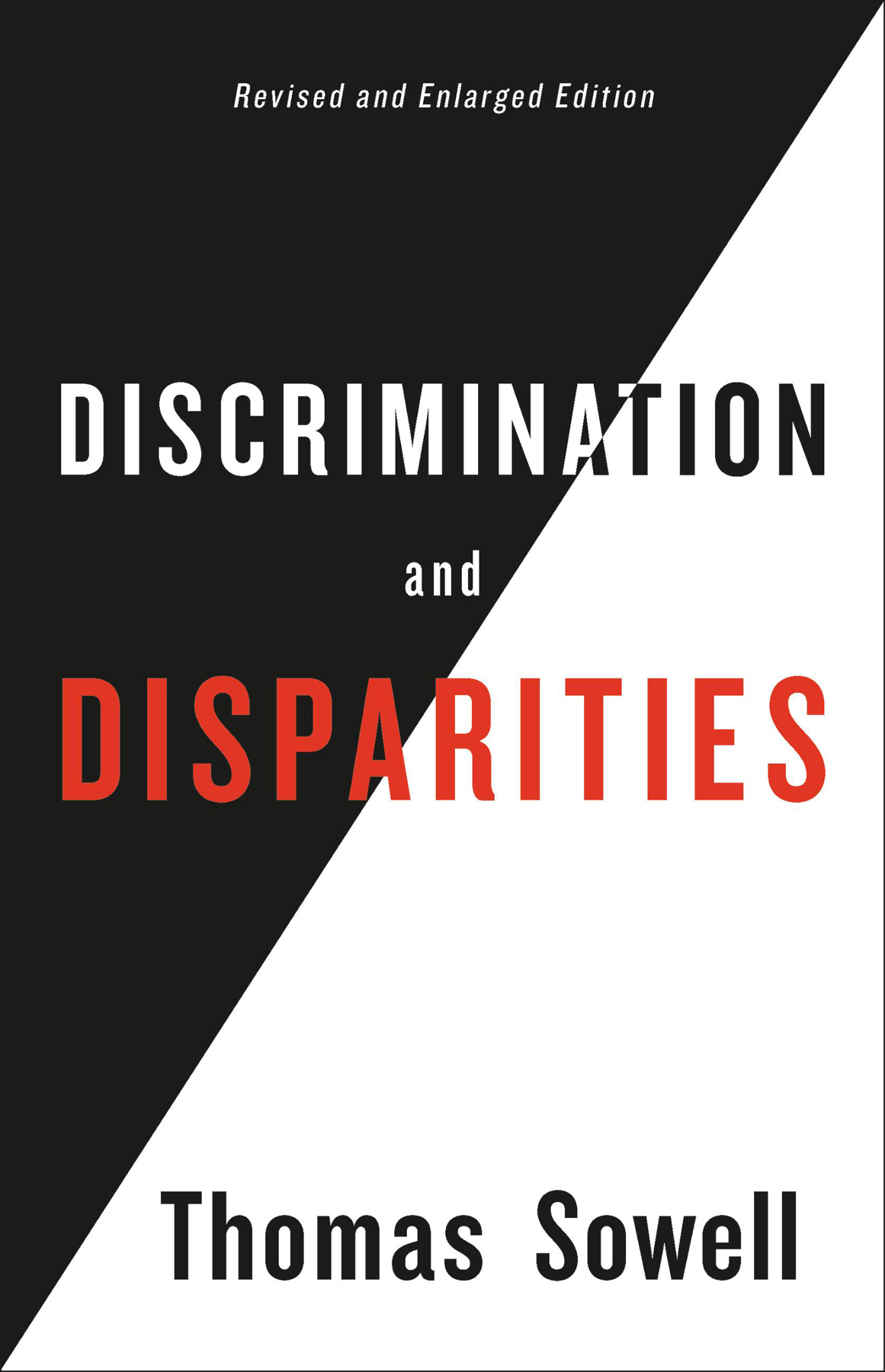Cover copyright 2019 Hachette Book Group, Inc.
Hachette Book Group supports the right to free expression and the value of copyright. The purpose of copyright is to encourage writers and artists to produce the creative works that enrich our culture.
The scanning, uploading, and distribution of this book without permission is a theft of the authors intellectual property. If you would like permission to use material from the book (other than for review purposes), please contact permissions@hbgusa.com. Thank you for your support of the authors rights.
Published by Basic Books, an imprint of Perseus Books, LLC, a subsidiary of Hachette Book Group, Inc. The Basic Books name and logo is a trademark of the Hachette Book Group.
The publisher is not responsible for websites (or their content) that are not owned by the publisher.
T he first edition of this book addressed the seemingly invincible fallacy that statistical disparities in socioeconomic outcomes imply either biased treatment of the less fortunate or genetic deficiencies in the less fortunate. This edition takes on other widespread fallacies, including a non sequitur underlying the prevailing social vision of our timenamely, that if individual economic benefits are not due solely to individual merit, there is justification for having politicians redistribute those benefits.
Each fallacy seems plausible on the surface, but that is what makes it worthwhile to scrutinize both their premises and the underlying facts. Many other new issues are addressed in this editionin an international context, as in the first editionbut these two fallacies seem to be at the heart of much, if not most, of the prevailing social vision, sometimes summarized as social justice.
Disagreements about social issues in general seem to be not only inevitable but even beneficial, when opposing sides are forced to confront contrary arguments that might not have been considered before, and examine empirical evidence not confronted before. Neither side may have taken all the factors into consideration, but having to cope with each others different views may bring out considerations that neither side gave much thought to at the outset.
Such searching re-examinations of opposing views have become all too rare in politics, in the media and even in academia, where the proud claim was once made that We are here to teach you how to think, not what to think. Today, with whole academic departments devoted to promoting particular conclusions about social issues, it seems especially important that such re-examinations of conflicting views take place somewhere, lest we become a people easily stampeded by rhetoric, garnished with a few arbitrarily selected facts or numbers.
Those readers who are looking for policy solutions will not find them here. But there are ample, if not more than ample, sources of
Thomas Sowell
The Hoover Institution
Stanford University
In no society have all regions and all parts of the population developed equally.
Fernand Braudel
L arge disparities in the economic and other outcomes of individuals, groups and nations have produced reactions ranging from puzzlement to outrage. Attempts to explain the causes of these disparities have likewise produced a wide range of responses. At one end of a spectrum of explanations offered is the belief that those who have been less fortunate in their outcomes are genetically less capable. At the other end of the spectrum is the belief that those less fortunate are victims of other people who are more fortunate.
In between, there are many other explanations offered. But, whatever the particular explanation offered, there seems to be general agreement that the disparities found in the real world differ greatly from what might be expected by random chance. Yet the disparities in outcomes found in economic and other endeavors need not be due to either comparable disparities in innate capabilities or comparable disparities in the way people are treated by other people.
The disparities can also reflect the plain fact that success in many kinds of endeavors depends on prerequisites peculiar to each endeavorand a relatively small difference in meeting those prerequisites can mean a very large difference in outcomes.
PREREQUISITES AND PROBABILITIES
The effect of prerequisites on probabilities is very straightforward. When there is some endeavor with five prerequisites for success, then by definition the chances of success in that endeavor depend on the chances of having all five of those prerequisites simultaneously. These prerequisites need not be rare in order to produce skewed distributions of outcomes. For example, if these prerequisites are all so common that chances are two out of three that any given person has any one of those five prerequisites, nevertheless the odds are against having all five of the prerequisites for success in that endeavor.
When the chances of having any one of the five prerequisites are two out of three, as in this example, the chance of having all five simultaneously is two-thirds multiplied by itself five times. That comes out to be 32/243 in this example,
What does this little exercise in arithmetic mean in the real world? One conclusion is that we should not expect success to be evenly or randomly distributed among individuals, groups, institutions or nations in endeavors with multiple prerequisiteswhich is to say, most meaningful endeavors. And if these are indeed prerequisites, then having four out of five prerequisites means nothing, as far as successful outcomes are concerned. In other words, people with most of the prerequisites for success may nevertheless be utter failures.
Whether a prerequisite that is missing is complex or simple, its absence can negate the effect of all the other prerequisites that are present. If you are illiterate, for example, all the other good qualities that you may have in abundance count for nothing in many, if not most, careers today. As late as 1950, more than 40 percent of the worlds adult population were still illiterate. That included more than half the adults in Asia and Africa.
If you are not prepared to undergo the extended toil and sacrifice that some particular endeavor may require, then despite having all the native potential for great success in that endeavor, and with all the doors of opportunity wide open, you can nevertheless become an utter failure.
Not all the prerequisites are necessarily within the sole control of the individual who has them or does not have them. Even extraordinary capacities in one or some of the prerequisites can mean nothing in the ultimate outcome.
Back in the early twentieth century, for example, Professor Lewis M. Terman of Stanford University launched a research project that followed 1,470 people with IQs of 140 and above for more than half a century. Data on the careers of men in this groupfrom an era when full-time careers for women were less commonshowed serious disparities even within this rare group, all of whom had IQs within the top one percent.



